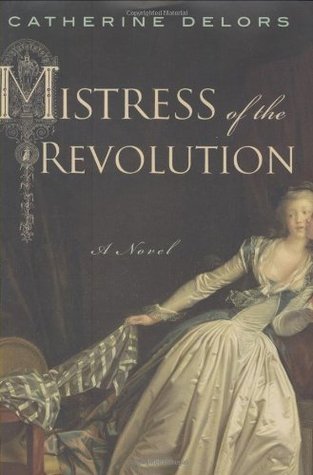What do you think?
Rate this book


451 pages, Hardcover
First published January 1, 2008
The role of women of the eighteenth-century noble elite was in many respects strictly limited. The task to which they were dedicated by their own order was to form a marriage alliance with another noble house for which they provided heirs. Marriage was therefore usually the most important event in their lives and it was one over which they had little control. In normal circumstances daughters of noble houses had only the right of refusal and knew little of their suitors. They were expected to obey their husband and if their behaviour displeased him he could imprison them permanently in a convent. Independence only came with widowhood and throughout their lives, women were governed by strict rules of etiquette which few dared transgress.
That night we attended the Queen’s gaming salon. She was seated at a card table, quite different from the woman I had seen before. Here, she was alive, enthralled by the game, the rules of which were unknown to me. All I understood, from the quantity of gold louis piled in front of each player and in the middle of the table, was that the stakes were very high. The Duchess de Polignac occupied the chair next to the Queen’s. The two friends were whispering to each other and giggling like schoolgirls…
Madame de Polignac looked at me and said something to the Queen’s ear. Her Majesty smiled at her friend and addressed me.
“Madam, will you not sit? The Count de Vaudreuil will gladly surrender his place to you.”
I obeyed, my heart beating fast. There were but two gold louis of twenty-four francs each in my pocket.
“Why, Baroness,” said the Queen, “do you not play?” Her manner had become haughty again.
I took a deep breath. “Your Majesty is very kind, but I have neither a taste for games of cards nor the means to indulge in them.”
The whole room became silent. After what seemed a very long pause, the Queen said: “How odd! What do you like then, Baroness?”
“I enjoy music and riding, madam, and more particularly reading.”
Madame de Polignac chuckled while the Queen shrugged and turned her attention back to the cards without paying me any further attention. I heard whispers and giggles behind my back. I rose and curtseyed to the Queen as soon as the game was over.
In 1815 England, an exiled Frenchwoman, Gabrielle de Monserrat, begins a memoir of her days before and during the French Revolution. Gabrielle, the youngest daughter of a family of the impoverished nobility, recalls her journey through hardships and betrayals by three men in her life.
My ambition became to make the French Revolution, often perceived as a confusing medley of events and characters, understandable for a reader without any scholarly knowledge of the period. I wanted to explain in an accurate manner how the chain of events led from idealism to bloodshed and international catastrophe, all through the eyes of an intelligent female witness.
These tidings from Paris have affected my spirits today. I never cry any more, yet feel tears choking me. I know that I must not allow myself this indulgence, for it is far easier to keep from crying than to quit. Nevertheless, over twenty years have passed since the great Revolution, and it is time for me at last to exhume my own dead and attempt to revive them, however feebly, under my pen.